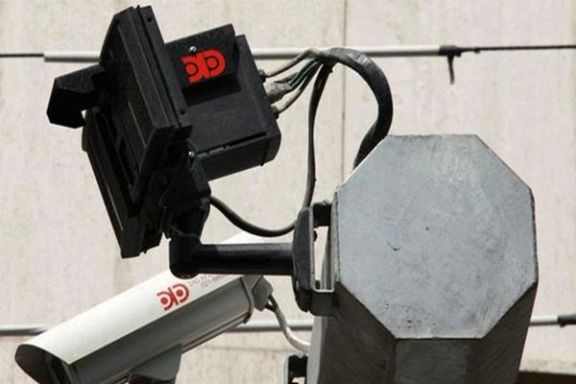Iran police demand full access to businesses' security cameras

The Iranian police's plan to gain unrestricted access to business CCTV footage has raised serious concerns about potential further restrictions on individual and social freedoms.

The Iranian police's plan to gain unrestricted access to business CCTV footage has raised serious concerns about potential further restrictions on individual and social freedoms.
The plan, as announced earlier this week by the spokesman of Iran’s union of trade organizations (Chamber of Traders), obliges a large array of businesses to use only police-approved CCTV cameras from now and to register their cameras on a specially created portal called Saptam.
The information released so far reveals that these “police-approved” cameras must be installed under authorities’ supervision and linked to a cloud-based database.
Many in Iran are worried that the police intend to use the footage from security cameras for tighter control of businesses that serve women who refuse to abide by hijab laws in the name of ensuring the security of large and small businesses.
Security cameras, they say, will be used in the same way that traffic cameras have been to levy cash fines on owners of vehicles who allow passengers not to wear the hijab and women who drive “bare-headed”.
Some also suspect that police access to the footage can help security forces to suppress dissent at times of anti-government protests and unrest much more effectively.
The police began implementing the plan a few months ago by requiring businesses such as money exchange bureaus, goldsmiths, and jewelry shops to install approved security cameras to prevent theft and robberies. Some other businesses now required to use the police-approved cameras include retail shops, cafes and restaurants, hotels, and wedding venues.
Considering that authorities cannot monitor hundreds of thousands of small businesses in real-time, the argument that these cameras are meant to prevent theft seems more like an excuse than a feasible solution.
“It won’t be long before they make the installation of such security systems, or rather tools of state control, in all companies, for the sake of hijab enforcement,” Alireza, the director of a small company in Tehran told Iran International.
“My female staff don't have to wear the hijab in our offices, but this will have to change if we provide the police access to our cameras or they can shut us down,” he added.
The plan is to be implemented by Polis-e Amaken, a dedicated branch of the Police authorized to ensure all business venues comply with Islamic regulations and “values” such as hijab. They also ensure that men and women do not mingle beyond the ‘accepted norms’ and that alcohol is not sold or served in restaurants and event halls.
Wedding halls, for instance, must provide separate sections for men and women if they want to remove their hijab, sing, or dance. Bribing the police to close their eyes to what happens at such a venue has been quite common practice for decades.
According to the Saptam portal, businesses with “low-security requirements” such as dry cleaners must store the footage from their cameras on cloud for at least one month for police reference. Some other businesses such as cafes and restaurants must store their security footage for six months or longer. Whether live police access to the cameras is included or planned is not clear yet.
Experts say creating such a massive database for security cameras on the cloud requires extensive telecommunication infrastructures, huge investments, and vast security measures to prevent hackers from accessing the footage and private data of the users.
Some netizens took to social media after the announcement to voice their concerns over the new plan.
Mandatory registration of security cameras is not the final goal, Saeed Souzangar, an internet access activist, contended in a tweet Thursday. “The next step will be installing cameras in our houses. Businesses must resist such abominable plans instead of surrendering to it,” he wrote.
“This is like the Chinese model [of controlling citizens]. They will deprive people from all their social rights,” another netizen tweeted.